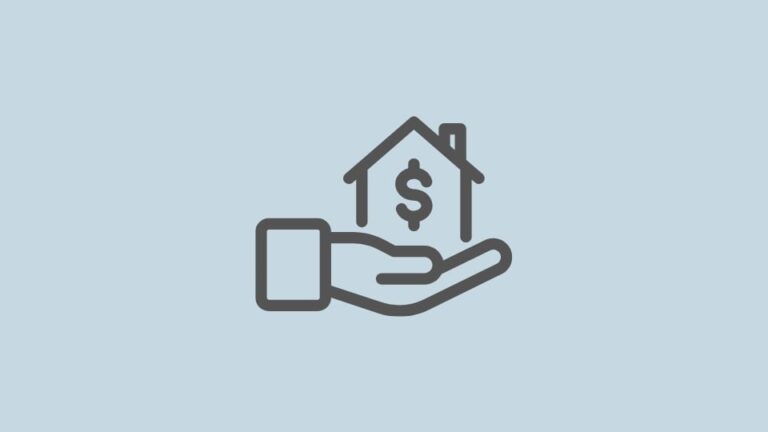Can A Landlord Garnish Wages for Unpaid Rent?
Ever wondered, “Can a landlord garnish my wages for unpaid rent?” It’s not a situation anyone wants to find themselves in, but with the fluctuations in the economy and recent disruptions, the question has gained relevance. Your paycheck, the lifeline of your livelihood can, indeed, ring alarm bells when rent goes unpaid. However, it’s not a simple, straightforward process, but rather, a complex legal undertaking where both landlords and tenants have rights and protections. Let’s delve into the intricacies.
“Can a landlord garnish my wages for unpaid rent?” It’s a looming question that brings with it a raft of legal complexities. To navigate these waters smoothly, understanding what wage garnishment is, how it works, and the conditions under which this drastic step can be taken, is crucial.”
Understanding the Legal Rights of Landlords
As a landlord, it’s imperative for you to understand your legal rights regarding the collection of unpaid rents. It may seem quite challenging, but comprehending this aspect can significantly smooth out your landlord-tenant relationships.
Legal rights of landlords primarily revolve around maintaining the tenants’ obligations under a lease or rental agreement. This includes timely payment of rent. When tenants fail to meet these obligations, the law grants landlords the right to take certain actions.
- Eviction: The first and foremost right provided to landlords is eviction. If a tenant fails to pay rent, landlords can terminate the lease after giving a proper notice.
- Lawsuit: Landlords can also file a lawsuit against a tenant who hasn’t paid their rent. This can often help recover the unpaid rent in question.
- Security Deposit: In addition, landlords have the right to apply a tenant’s security deposit towards unpaid rents, provided the state laws allow it.
However, the right to garnish a tenant’s wages is not readily available. Wage garnishment typically requires a court judgment and must follow strict legal procedures. We’ll delve deeper into wage garnishment in the following sections.
Remember, practicing these rights requires landlords to abide by the law. Landlords must not resort to ‘self-help’ eviction methods, such as changing locks or shutting off utilities, as these can result in legal trouble. Knowledge is power, and keeping updated with the rights and responsibilities helps you navigate the complexities of being a landlord.
Exploring the Concept of Wage Garnishment
Let’s begin by demystifying the term wage garnishment. When a debtor isn’t paying off a debt as agreed, the lender or the creditor can obtain a court order to garnish their paycheck. This means they can lawfully deduct a specific amount directly from the debtor’s wages until the debt is fully paid. This direct withholding of money is what we refer to as wage garnishment.
But remember, wage garnishment is not an arbitrary process. It requires a step-by-step legal procedure and, in most cases, a court judgment. The creditor must prove to a judge that the debtor has indeed defaulted on payments. Only then will a wage garnishment order be issued.
- Wage garnishment can be impactful: A significant portion of the debtor’s salary can be shaved off, creating financial strain. The percentage deducted is subject to federal and state laws and can vary from case to case.
- It affects credit scores: Wage garnishment is usually a result of delinquent payments and as such, can negatively impact your credit score.
- Workplace implications: While federal law prohibits an employer from firing a worker because their wages are being garnished, it can potentially create an uncomfortable workplace environment.
Now, we’ve started to unravel the knot that is wage garnishment. Having covered the basics, it’s important to delve a bit deeper to understand wage garnishment in the specific context of unpaid rent. Stay with us as we explore whether landlords can opt for this solution in the sections ahead.
Is Garnishing Wages an Option for Landlords?
Let’s get straight to the bottom of your burning question: can a landlord garnish a tenant’s wages for unpaid rent? In a nutshell, yes, landlords can seek to garnish wages for unpaid rent. Now, you might wonder, “Isn’t it incredibly drastic?” It is indeed considered a severe measure when a tenant falls behind in payments.
Few things should be noted here. First, wage garnishment is not a more direct method by which a landlord can recover unpaid rent. Typically, this process comes into play after attempts at negotiation or other methods of payment recovery aren’t successful. And importantly, it’s underscored by a court order.
Here are some necessary steps. The landlord must first obtain a judgment for possession and a monetary judgment for the rent owed. This usually means going to court and proving their case that the tenant indeed owes this money and has not paid. After a judgment is awarded, the landlord would then seek a garnishment order from the court.
However, not all money can be garnished. There’s a limit to how much a landlord can take from a tenant’s salary, usually capped at 25% of the tenant’s net pay. Additionally, certain income sources, including social security benefits, unemployment insurance, and workers’ compensation benefits are generally exempt from garnishments.
This does not mean landlords have the green light to garnish wages willy-nilly, however. They need to tread carefully. There are plenty of legal considerations, protections for tenants, and potential backlash to consider. So, while wage garnishment could represent a potential way to recover unpaid rent, it should be viewed as a last resort.
Examining the Impact of Unpaid Rent on Landlords
When tenants fail to fulfill their financial obligations, it’s not just a matter of inconvenience for the landlords. You might be surprised to learn the extent of the ripple effects caused by a single instance of unpaid rent. Let’s dive in to understand the challenges landlords should brace for in such a scenario.
First off, it puts a significant strain on the landlord’s financial stability. A landlord’s income is often predictable, based on the number of properties rented and rent rates. When a tenant does not pay up, it disrupts the landlord’s budget, which can lead to them not being able to cover their costs associated with property, such as mortgage payments, maintenance costs, or even the property’s taxes.
Another often-overlooked impact is the time and effort involved in recovering unpaid rent. The process of issuing notices, filing claims, and going to court isn’t just stressful but can be quite time-consuming as well. Ultimately, it takes away their focus from other important areas like property maintenance and seeking new tenants.
In addition to these tangible effects, there’s also the stress and worry it brings, especially if the unpaid rent goes for a long time. Being a landlord is a business, and like any business, they face the threat of cash-flow problems and the potential for financial instability.
Therefore, landlords aren’t just voidly asking for their hard-earned cash. It’s a matter of survival, maintaining their livelihood, and ensuring they can continue to provide a home for their tenants in the long run.
Note: While these impacts can certainly be tough on landlords, it’s equally important to remember that tenants may be facing financial hardship of their own. Open communication and negotiation can go a long way in these situations.
The Process of Garnishing Wages for Unpaid Rent
When you have unpaid rent, your landlord may ultimately choose to take the route of wage garnishment. But what does the process look like? Here’s a simple breakdown just for you.
First, it’s important to understand that wage garnishment doesn’t happen overnight. It’s a legal process that requires the landlord to go through several steps before your employer can legally withhold a portion of your earnings.
Step One: Judgement
Your landlord must initially gain a judgement against you in court for unpaid rent. Having a signed lease and proof of your debt, the landlord will petition a court for a judgement. This step is not a mere formality, but a step which requires presentation of evidence and due process. You will have the opportunity to present your own case, should you choose to.
Step Two: Writ of Garnishment
Following a judgement in their favor, the landlord will then request a writ of garnishment from the court. This is a legal document that orders your employer to withhold a certain portion of your wages. Different states have different laws regarding the maximum amount that can be garnished.
Step Three: Notification
Once the writ of garnishment is granted, your employer will be officially notified. This often takes the form of a served notice to your employer, instructing them about the wage garnishment, including the percent to be garnished, and how the withheld funds should be sent to the court or directly to the landlord.
Step Four: Wage Withholding
The final step occurs when your employer starts to withhold your wages according to the writ of garnishment. Your pay will reflect this until the debt is fully paid or until other legal action is taken to stop or alter the garnishment.
Remember, each step in this process offers its own set of legal rights and protections, both for you and the landlord. It’s highly recommended to seek legal counsel if you find yourself in this situation, to ensure your rights are upheld.
Important Factors to Consider in Wage Garnishment Cases
When it comes to wage garnishment cases, both landlords and tenants should be mindful of various factors. The aim is not only to ensure legality but also to guarantee that decisions align with both parties’ best interests.
Cost of legal proceedings: Legal proceedings can be costly. Landlords must be aware that the cost of legal advice, court fees, and possibility of appellate proceedings can sometimes outweigh the unpaid rent initially involved.
Expectation of payment: Landlords should consider their tenant’s financial status. If the tenant is unemployed, has low income, or is facing serious financial hardship, attempts to garnish wages may prove fruitless.
State laws and regulations: Different states have different laws regarding wage garnishment. It ranges from the limits on how much percentage of a tenant’s paycheck can be garnished to exemptions applying to certain individuals or situations. Always consult local regulations or an attorney familiar with the local landlord-tenant law.
Validity of the debt: As a landlord, ensure that the money the tenant owes you is undisputed. If there are disagreements over the amount or validity of the debt, it may complicate your attempts at wage garnishment.
The timeline for resolution: Wage garnishment is not a quick solution to unpaid rent. The entire process, from filing the lawsuit to receiving money from garnished wages, could take months or even years depending on the jurisdictions.
Lastly, always remember to communicate and seek common ground with your tenant first. Legal proceedings should be a last resort, as the cost and time spent may outweigh the benefits. Also, a healthy landlord-tenant relationship is mutually beneficial and can circumvent unnecessary legal proceedings.
Legal Requirements for Landlords Seeking to Garnish Wages
Now, if you’re a landlord pondering the option of wage garnishment, be warned: it does not simply involve showing up at a tenant’s workplace with a sternly worded letter. There are certain legal steps to follow before you can legally garnish a tenant’s wages. Understanding these requirements is key to avoid legal setbacks and to ensure an effective remedy for unpaid rents.
Firstly, you must have a court judgment. This means you’ve taken your tenant to court over unpaid rent, and the court has ruled in your favor. This judgment will outline the amount that the tenant owes. Without a judgment, wage garnishment isn’t legally possible. It’s the process of the law, and attempts to circumvent this procedure may put you at the receiving end of legal penalties.
Next comes obtaining a writ of garnishment. Having a court judgment in your pocket doesn’t immediately mean you can start garnishing wages. You need to request the court to issue a writ of garnishment, a legal document that mandates an employer to withhold a portion of an employee’s earnings to repay a debt.
In addition to these prerequisites, there are also limits on how much of a tenant’s income can be garnished. The Federal law places a cap on garnishment at 25% of the debtor’s disposable earnings or the amount by which a debtor’s weekly earnings exceed 30 times the federal minimum wage, whichever is less. Some states have even tighter limits, so it’s critical to consult local laws to understand exactly what’s permissible.
Lastly, remember that the garnished amount, by law, must go towards the payment of the court-stated debt. You as the landlord cannot use the funds for other reasons, violation of which can lead to hefty fines and legal complications.
Garnishing wages is a serious, legal option. It’s not a process to be entered into lightly or without careful consideration of the legal implications. Missteps along the way can lead to legal headaches that make the initial problem of unpaid rent seem trivial in comparison. That’s why we’d recommend working with a seasoned attorney or legal advisor to navigate these demands correctly and effectively.
The Rights and Protections of Tenants Facing Wage Garnishment
It’s important for you, as a tenant, to know that you’re not without protections even if your landlord is seeking to garnish your wages due to unpaid rent. The legal system acknowledges that the process of wage garnishment can place significant financial pressure on an individual, and so, numerous safeguards are in place to protect tenants in this circumstance.
Primarily, the Consumer Credit Protection Act (CCPA) preserves your rights by limiting the amount of garnishment that can take place. As federally defined, the maximum garnishment cannot exceed 25% of a worker’s disposable earnings or the amount by which these earnings are greater than 30 times the federal minimum wage, whichever is lower.
Furthermore, exemptions exist that may protect certain amounts or portions of your wages from being garnished entirely. Please note that these rules might vary from state to state, and hence you should consult with a lawyer or reach out to an aid organization to understand your local guidelines.
There’s also the legal requirement of proper notice. The landlord can’t simply begin wage garnishment without first notifying you. This helps ensure you’re aware of the situation and have the opportunity to pay the outstanding debt or contest the garnishment. You can also ask for a hearing on the matter, providing a chance for you to argue your case.
Lastly, it’s important to understand that garnishments are ‘one-at-a-time’ events – multiple garnishments can’t happen simultaneously. If your wages are already being garnished for a different debt, your landlord will have to wait their turn.
As stress-inducing as the situation might seem, remember to stay informed and proactive. Familiarize yourself with your rights and protect them. When in doubt, do seek legal help.
Negotiating Solutions for Unpaid Rent: Mediation and Settlements
When you, as a tenant, are facing wage garnishment for unpaid rent, it’s understandable to feel a sense of worry and desperation. Nevertheless, it might surprise you to know that there are also negotiated solutions that could help. Mediation and settlements are alternatives that could significantly decrease financial implications while resolving the issue of unpaid rent.
Mediation:
In this process, a neutral third party, known as a mediator, assists both landlords and tenants to communicate their concerns and work towards a mutually acceptable resolution. The mediator won’t impose any decisions on either party but would merely facilitate constructive dialogue and negotiation. Mediation can be a less adversarial and more cost-effective approach than court proceedings.
Settlements:
A settlement typically includes an agreement devised by the landlord and tenant concerning back rent payment. The tenant could authorize a lump-sum payment or perhaps a payment plan, and in return, the landlord would promise not to pursue any further legal or collection action, including wage garnishment.
Here’s an example of how the process works:
A tenant might owe $5000 in back rent. In a settlement, they could agree to pay the landlord $2500 as a compromise, or perhaps $200 a month for a year until the debt is entirely paid. The landlord, in return, would agree to write off the remaining balance and refrain from any further collection actions.
However, keep in mind, the ability to negotiate a settlement might depend significantly on the landlord’s willingness to compromise on the amount due. Furthermore, if you take the agreement route, ensure every aspect of the deal is put in writing to provide legal protection should any disagreement arise in the future.
Lastly, tenants should explore legal representation or counseling before entering into negotiations or settlement discussions to fully understand their rights and obligations.
Preventing Unpaid Rent: Tips for Landlords and Tenants
Preventing unpaid rent situations is the key to avoiding wage garnishment. Both landlords and tenants play an important role here. This section offers practical tips on how you both can maintain an amicable landlord-tenant relationship, hence ensuring a continuous flow of rental payments, and in turn, minimizing the possibilities of wage garnishment or other legal procedures.
First, let’s start with tips for landlords. Remember, being understanding and considerate towards your tenants can go a long way, and these tips can help solidify that relationship:
- Open and clear communication: Consistently communicate with your tenants, update them about any changes in the rental agreement, and address their concerns promptly.
- Rent reminders: A friendly reminder a few days before the due date can prevent oversight. Automated reminders via email or text can be quite.
- Flexible Payment Options: Offering various payment modes like online transfers, checks, or cash can make it easier for tenants to pay their rent on time.
- Tenant screening: Conducting a thorough screening before renting out your property helps ensure the potential tenant can afford the rent and has a history of paying on time.
Now, here are some tips for tenants to help ensure you’re paying your rent on time and avoiding any unnecessary legal complications:
- Budgeting: Always account for rent payments in your budget. It’s one of the most essential payments that you shouldn’t compromise on.
- Timely payments: Make it a habit to pay your rent on time, avoiding late fees or potential eviction notices.
- Direct communication: If you are facing financial hardships and can’t afford your rental payments, be open with your landlord about your situation. They may be able to work with you and agree to a temporary rent reduction or payment plan.
- Understanding your lease: Make sure you read your lease agreement carefully and have a thorough understanding of the terms and conditions, so there are no surprises later.
Remember, the goal is to prevent a situation that leads to wage garnishment. Open communication, understanding, and a bit of flexibility can go a long way in ensuring that rent payments are made duly and prevent any unnecessary legal action.
Supporting Landlords and Tenants: Resources and Assistance Programs
It’s crucial for both landlords and tenants to understand they are not alone amidst the struggle with rent payments. Various resources and assistance programs exist to help sort through these challenges. Accessing these resources and information can provide clarity, options, and potential solutions.
Rental Assistance Programs: Highly beneficial for tenants struggling to keep up with their rent payments, these programs offer financial support to help ease this burden. The Department of Housing and Urban Development (HUD) offers several assistance programs such as the Housing Choice Voucher Program (Section 8), public housing, and privately owned subsidized housing.
The Emergency Rental Assistance Program under the American Rescue Plan is another key resource. This program provides $21.6 billion to assist households that are unable to pay rent or utilities due to the COVID-19 pandemic.
Non-governmental organizations and charities also have programs that provide emergency rent assistance to those in need. These organizations include the Salvation Army, United Way, and Catholic Charities, among others.
Legal Aid Services: These organizations can provide free or low-cost legal advice and representation to tenants who are facing eviction proceedings. The Legal Services Corporation, a nonprofit established by Congress, funds legal aid organizations across the country.
Landlords can also seek advice from legal experts if they are considering wage garnishment or eviction proceedings. Many state and local bar associations offer lawyer referral, services which can help landlords find an attorney who specializes in landlord-tenant law.
Education is the first step to navigating these challenging situations—landlords and tenants alike must acquaint themselves with the resources available to them and understand their legal rights and responsibilities. This understanding can ensure fair treatment, prevent costly legal issues, and foster healthy landlord-tenant relationships.
Conclusion
In conclusion, landlords can pursue wage garnishments for unpaid rent, but it involves navigating a complex legal process. It requires a court judgment in the landlord’s favor, an assessment of the tenant’s financial status, and adherence to federal and state wage garnishment limits.
Tenants also have rights and protections against wage garnishment, including the ability to challenge the landlord’s claim or seek legal help. It’s always encouraged that parties consider negotiation and mediation first. Knowledge about these processes and a respectful, understanding approach can foster a better landlord-tenant relationship and help prevent rent disputes.






